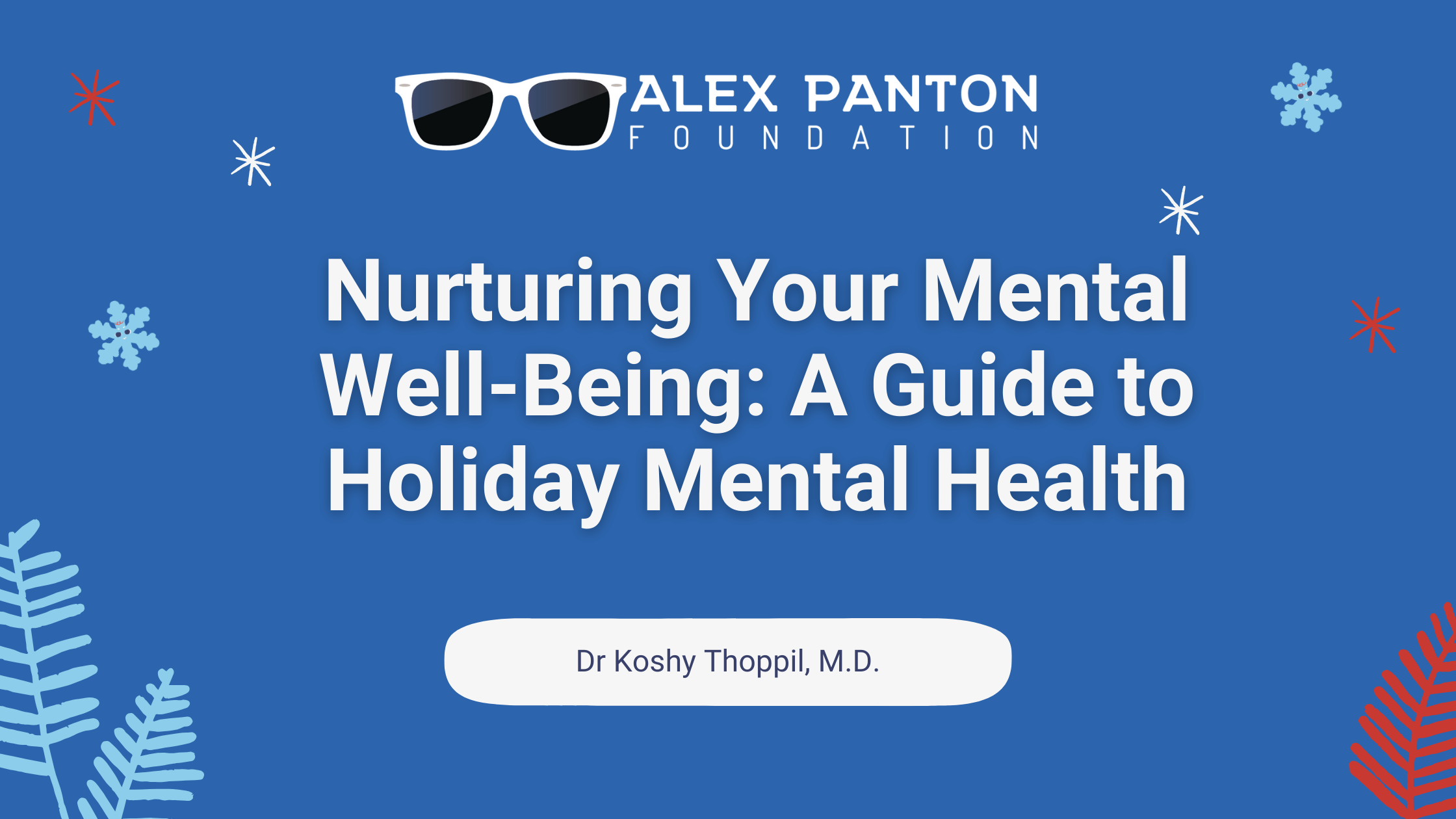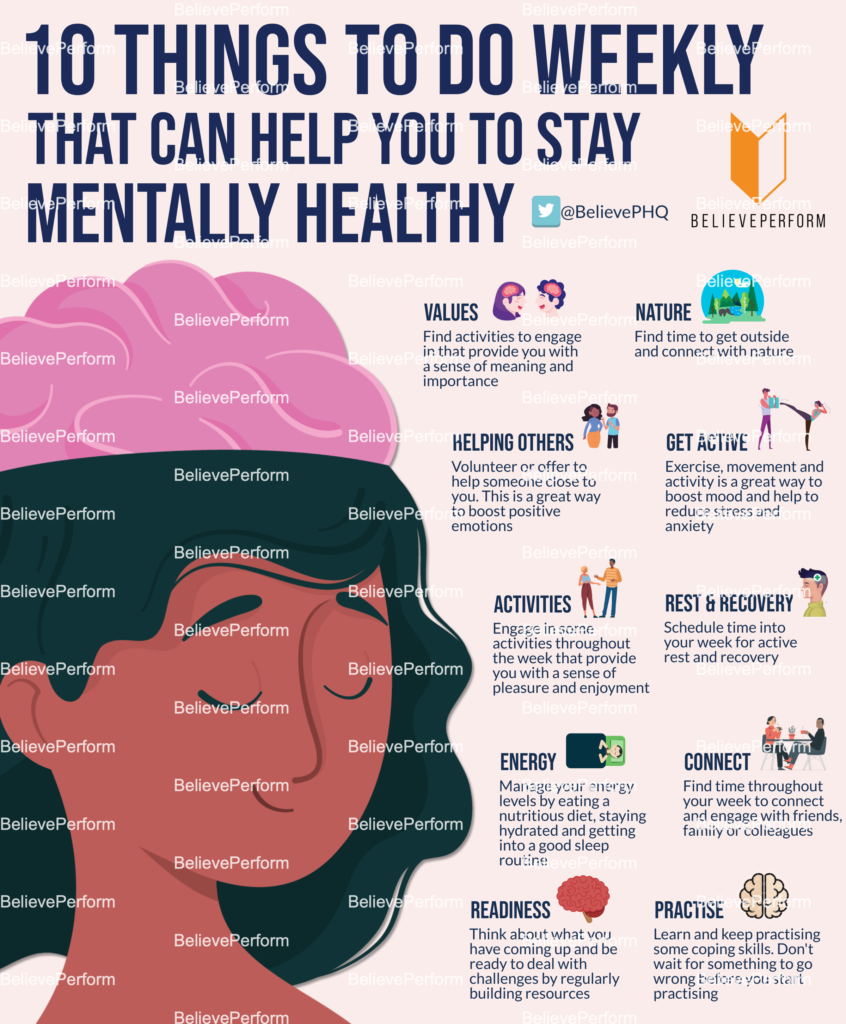“Staying Mentally Healthy: A Comprehensive Guide to Nurturing Your Well-being
Artikel Terkait Staying Mentally Healthy: A Comprehensive Guide to Nurturing Your Well-being
- Amazing Insurance Policy Rates: Get the Best Deals
- Harnessing AI and Wearables for Enhanced Cardiovascular Risk Detection
- The Role of AI in Pain Management: The Growing Influence of Smart Healthcare Devices
- Understanding Subrogation in Insurance: A Comprehensive Guide
- The Role of AI in Smart Healthcare Devices for Lung Health Management
Pengantar
Dengan penuh semangat, mari kita telusuri topik menarik yang terkait dengan Staying Mentally Healthy: A Comprehensive Guide to Nurturing Your Well-being. Ayo kita merajut informasi yang menarik dan memberikan pandangan baru kepada pembaca.
Table of Content
Video tentang Staying Mentally Healthy: A Comprehensive Guide to Nurturing Your Well-being
Staying Mentally Healthy: A Comprehensive Guide to Nurturing Your Well-being

In today’s fast-paced and demanding world, mental health is often overlooked, despite its crucial role in our overall well-being. Maintaining good mental health is not merely the absence of mental illness; it’s a state of emotional, psychological, and social well-being that allows us to cope with life’s challenges, work productively, and contribute to our communities.
Mental health affects how we think, feel, and act. It influences our ability to handle stress, relate to others, and make choices. When our mental health is compromised, it can impact our physical health, relationships, and overall quality of life. Therefore, prioritizing and nurturing our mental well-being is essential for living a fulfilling and balanced life.
This comprehensive guide provides practical strategies and insights to help you stay mentally healthy, build resilience, and cultivate a positive mindset.
1. Cultivate Self-Awareness
The first step toward maintaining good mental health is understanding yourself. Self-awareness involves recognizing your emotions, thoughts, values, and behaviors. It’s about being honest with yourself about your strengths and weaknesses, and understanding how you react to different situations.
- Practice Mindfulness: Mindfulness is the practice of paying attention to the present moment without judgment. It can help you become more aware of your thoughts and feelings as they arise. You can practice mindfulness through meditation, deep breathing exercises, or simply by focusing on your senses.
- Journaling: Writing down your thoughts and feelings can be a powerful way to gain clarity and insight into your inner world. Journaling can help you identify patterns in your thinking and behavior, and track your progress over time.
- Seek Feedback: Ask trusted friends, family members, or colleagues for feedback on your behavior and communication style. This can help you identify blind spots and areas for improvement.
- Self-Reflection: Take time each day to reflect on your experiences, thoughts, and feelings. Ask yourself questions like, "What am I grateful for today?" or "What can I learn from this experience?"

2. Prioritize Self-Care
Self-care is the practice of taking deliberate actions to care for your physical, emotional, and mental well-being. It’s about recognizing your needs and taking steps to meet them. Self-care is not selfish; it’s essential for maintaining your health and well-being.
- Physical Self-Care:

- Get Enough Sleep: Aim for 7-9 hours of quality sleep each night.
- Eat a Healthy Diet: Focus on whole, unprocessed foods, including fruits, vegetables, lean protein, and whole grains.
- Exercise Regularly: Find an activity you enjoy and aim for at least 30 minutes of moderate-intensity exercise most days of the week.
- Stay Hydrated: Drink plenty of water throughout the day.

- Emotional Self-Care:
- Practice Gratitude: Take time each day to appreciate the good things in your life.
- Engage in Hobbies: Make time for activities you enjoy, such as reading, painting, or playing music.
- Spend Time in Nature: Research shows that spending time in nature can reduce stress and improve mood.
- Practice Relaxation Techniques: Try meditation, deep breathing, or yoga to calm your mind and body.
- Mental Self-Care:
- Set Boundaries: Learn to say no to requests that drain your energy or compromise your values.
- Challenge Negative Thoughts: Question negative thoughts and replace them with more positive and realistic ones.
- Learn Something New: Engage your mind by taking a class, reading a book, or learning a new skill.
- Limit Screen Time: Reduce your exposure to screens, especially before bed.
3. Build Strong Relationships
Humans are social creatures, and strong relationships are essential for our mental health. Meaningful connections with others provide us with a sense of belonging, support, and purpose.
- Nurture Existing Relationships: Make time for the people you care about. Spend quality time together, listen to their concerns, and offer your support.
- Join Social Groups: Participate in activities with like-minded people. This can be a great way to meet new friends and expand your social circle.
- Practice Empathy: Try to understand others’ perspectives and feelings. This can help you build stronger and more meaningful relationships.
- Communicate Effectively: Learn to express your needs and feelings in a clear and respectful way. This can help you avoid misunderstandings and resolve conflicts.
4. Manage Stress Effectively
Stress is a normal part of life, but chronic stress can take a toll on our mental and physical health. Learning to manage stress effectively is crucial for maintaining well-being.
- Identify Your Stressors: Keep a journal to track the situations and events that trigger your stress.
- Develop Coping Strategies: Find healthy ways to cope with stress, such as exercise, meditation, or spending time with loved ones.
- Practice Time Management: Prioritize tasks, break them down into smaller steps, and avoid procrastination.
- Learn to Relax: Practice relaxation techniques, such as deep breathing, progressive muscle relaxation, or guided imagery.
- Seek Support: Talk to a trusted friend, family member, or therapist about your stress.
5. Set Realistic Goals
Setting goals can give us a sense of purpose and direction in life. However, it’s important to set realistic goals that are achievable. Setting unrealistic goals can lead to disappointment and stress.
- Set SMART Goals: SMART goals are Specific, Measurable, Achievable, Relevant, and Time-bound.
- Break Down Large Goals: Divide large goals into smaller, more manageable steps.
- Celebrate Your Successes: Acknowledge and celebrate your accomplishments, no matter how small.
- Learn from Your Mistakes: Don’t be afraid to make mistakes. View them as opportunities for learning and growth.
- Be Flexible: Be willing to adjust your goals as needed. Life circumstances can change, and it’s important to be adaptable.
6. Practice Gratitude
Gratitude is the act of appreciating the good things in your life. Practicing gratitude can improve your mood, reduce stress, and increase your overall sense of well-being.
- Keep a Gratitude Journal: Write down things you are grateful for each day.
- Express Your Gratitude: Tell people you appreciate them.
- Notice the Small Things: Pay attention to the everyday moments that bring you joy.
- Challenge Negative Thoughts: When you find yourself focusing on the negative, try to shift your attention to the positive.
- Practice Gratitude Meditations: There are many guided gratitude meditations available online.
7. Challenge Negative Thinking
Negative thinking can have a significant impact on our mental health. It can lead to feelings of sadness, anxiety, and hopelessness. Learning to challenge negative thoughts is essential for maintaining a positive mindset.
- Identify Negative Thoughts: Pay attention to the thoughts that run through your mind.
- Question Negative Thoughts: Ask yourself if your thoughts are based on facts or assumptions.
- Reframe Negative Thoughts: Replace negative thoughts with more positive and realistic ones.
- Practice Self-Compassion: Treat yourself with kindness and understanding.
- Seek Professional Help: If you struggle to challenge negative thoughts on your own, consider seeking help from a therapist.
8. Seek Professional Help When Needed
It’s important to recognize that seeking professional help for mental health is a sign of strength, not weakness. If you are struggling with your mental health, don’t hesitate to reach out to a therapist, counselor, or psychiatrist.
- Recognize the Signs: Be aware of the signs and symptoms of mental health problems, such as persistent sadness, anxiety, or changes in sleep or appetite.
- Find a Qualified Professional: Look for a therapist or counselor who is licensed and experienced in treating your specific concerns.
- Be Open and Honest: Be honest with your therapist about your thoughts and feelings.
- Follow Your Treatment Plan: Follow your therapist’s recommendations and attend your appointments regularly.
- Be Patient: It may take time to see results from therapy. Be patient and persistent.
9. Stay Active and Engaged
Staying active and engaged in life can boost your mood and reduce stress. Find activities that you enjoy and make time for them regularly.
- Exercise Regularly: Physical activity releases endorphins, which have mood-boosting effects.
- Volunteer Your Time: Helping others can give you a sense of purpose and connection.
- Learn New Things: Engage your mind by taking a class, reading a book, or learning a new skill.
- Travel: Exploring new places can broaden your horizons and provide you with new experiences.
- Attend Social Events: Connect with others by attending social events, such as concerts, festivals, or sporting events.
10. Limit Exposure to Negative Influences
Be mindful of the people, places, and things that negatively impact your mental health. Limit your exposure to these influences as much as possible.
- Avoid Toxic Relationships: Distance yourself from people who are negative, critical, or draining.
- Limit Social Media Use: Social media can be a source of stress and comparison. Set limits on your social media use.
- Avoid News Overload: Stay informed, but avoid constantly consuming negative news.
- Create a Positive Environment: Surround yourself with things that make you feel good, such as plants, art, or music.
- Practice Self-Care: Prioritize activities that nurture your mental and emotional well-being.
Conclusion
Maintaining good mental health is an ongoing process that requires effort and attention. By cultivating self-awareness, prioritizing self-care, building strong relationships, managing stress effectively, and challenging negative thinking, you can nurture your mental well-being and live a more fulfilling and balanced life. Remember, seeking professional help is a sign of strength, and there is no shame in reaching out for support when you need it. Prioritizing your mental health is an investment in your overall well-being and happiness.

Penutup
Dengan demikian, kami berharap artikel ini telah memberikan wawasan yang berharga tentang Staying Mentally Healthy: A Comprehensive Guide to Nurturing Your Well-being. Kami berterima kasih atas perhatian Anda terhadap artikel kami. Sampai jumpa di artikel kami selanjutnya!
